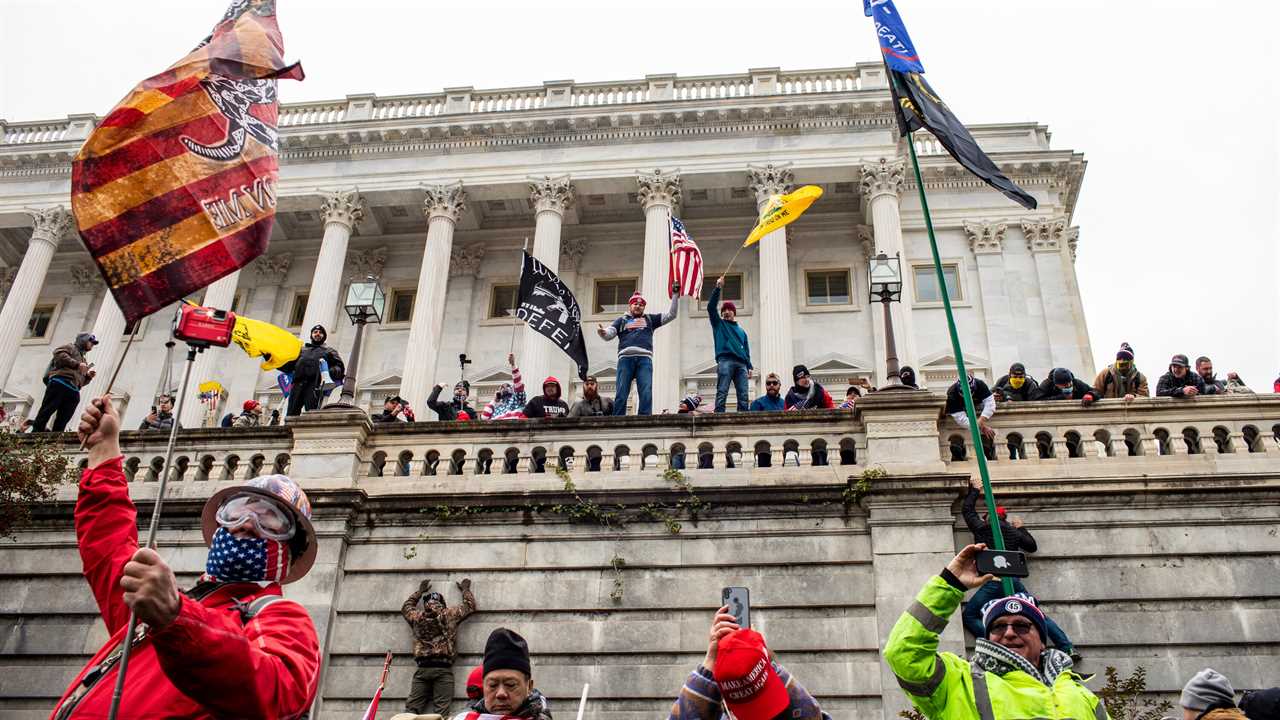
At a conservative rally in western Idaho last month, a young man stepped up to a microphone to ask when he could start killing Democrats.“When do we get to use the guns?” he said as the audience applauded. “How many elections are they going to steal before we kill these people?” The local state representative, a Republican, later called it a “fair” question.In Ohio, the leading candidate in the Republican primary for Senate blasted out a video urging Republicans to resist the “tyranny” of a federal government that pushed them to wear masks and take F.D.A.-authorized vaccines.“When the Gestapo show up at your front door,” the candidate, Josh Mandel, a grandson of Holocaust survivors, said in the video in September, “you know what to do.”And in Congress, violent threats against lawmakers are on track to double this year. Republicans who break party ranks and defy former President Donald J. Trump have come to expect insults, invective and death threats — often stoked by their own colleagues and conservative activists, who have denounced them as traitors.From congressional offices to community meeting rooms, threats of violence are becoming commonplace among a significant segment of the Republican Party. Ten months after rioters attacked the United States Capitol on Jan. 6, and after four years of a president who often spoke in violent terms about his adversaries, right-wing Republicans are talking more openly and frequently about the use of force as justifiable in opposition to those who dislodged him from power.In Washington, where decorum and civility are still given lip service, violent or threatening language still remains uncommon, if not unheard-of, among lawmakers who spend a great deal of time in the same building. But among the most fervent conservatives, who play an outsize role in primary contests and provide the party with its activist energy, the belief that the country is at a crossroads that could require armed confrontation is no longer limited to the fringe.Political violence has been part of the American story since the founding of the country, often entwined with racial politics and erupting in periods of great change. And elements of the left have contributed to the confrontational tenor of the country’s current politics, though Democratic leaders routinely condemn violence and violent imagery. But historians and those who study democracy say what has changed has been the embrace of violent speech by a sizable portion of one party, including some of its loudest voices inside government and most influential voices outside.In effect, they warn, the Republican Party is mainstreaming menace as a political tool.Omar Wasow, a political scientist at Pomona College who studies protests and race, drew a contrast between the current climate and earlier periods of turbulence and strife, like the 1960s or the run-up to the Civil War.“What’s different about almost all those other events is that now, there’s a partisan divide around the legitimacy of our political system,” he said. “The elite endorsement of political violence from factions of the Republican Party is distinct for me from what we saw in the 1960s. Then, you didn’t have — from a president on down — politicians calling citizens to engage in violent resistance.”ImageProtesters opposed to Covid vaccines gathered at a rally outside the Arizona State Capitol in September.Credit...Adriana Zehbrauskas for The New York TimesFrom his earliest campaigning to the final moments of his presidency, Mr. Trump’s political image has incorporated the possibility of violence. He encouraged attendees at his rallies to “knock the hell” out of protesters, praised a lawmaker who body-slammed a reporter, and in a recent interview defended rioters who clamored to “hang Mike Pence.”Yet even with the former president largely out of the public eye and after a deadly attack on the Capitol where rioters tried to overturn the presidential election, the Republican acceptance of violence has only spread.Polling indicates that 30 percent of Republicans, and 40 percent of people who “most trust” far-right news sources, believe that “true patriots” may have to resort to violence to “save” the country — a statement that gets far less support among Democrats and independents.Such views, routinely expressed in warlike or revolutionary terms, are often intertwined with white racial resentments and evangelical Christian religious fervor — two potent sources of fuel for the G.O.P. during the Trump era — as the most animated Republican voters increasingly see themselves as participants in a struggle, if not a kind of holy war, to preserve their idea of American culture and their place in society.Notably few Republican leaders have spoken outBy: Lisa Lerer and Astead W. Herndon
Title: Menace, as a Political Tool, Enters the Republican Mainstream
Sourced From: www.nytimes.com/2021/11/12/us/politics/republican-violent-rhetoric.html
Published Date: Fri, 12 Nov 2021 19:09:31 +0000
Read More
 UK PoliticsWorld PoliticsVideosPrivacy PolicyTerms And Conditions
UK PoliticsWorld PoliticsVideosPrivacy PolicyTerms And Conditions
